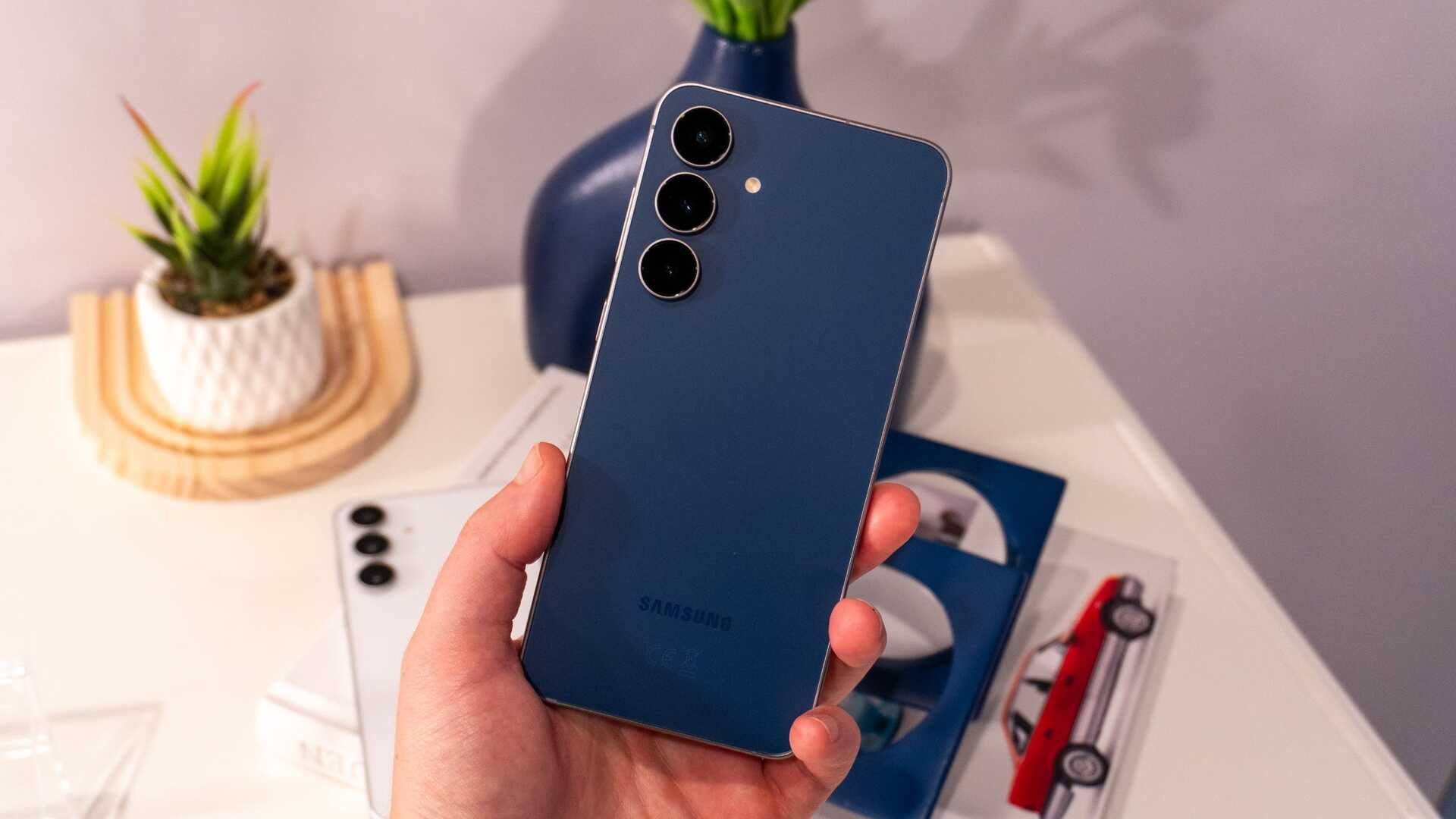- TECHSWU
- Posts
- TECHSWU
TECHSWU


Lenovo has just launched the Legion Go 2, an exciting new handheld gaming PC that’s turning heads with its detachable controllers and vibrant 8.8-inch OLED VRR display.
Scheduled for release in October, this upgraded version features improvements based on user feedback, including enhanced controllers with Hall effect joysticks and a handy kickstand for comfortable gaming. It also boasts AMD’s Ryzen Z2 processors and up to a whopping 2TB of storage—ideal for any serious gamer! Pricing starts at $1,099.
99 for the base model, making it a compelling contender in the gaming market. Plus, for those on a budget, Lenovo has introduced the Legion Go S at a more accessible price starting at $830.


Samsung's new Galaxy S25 FE is making waves as a budget-friendly "flagship" packed with standout features. Debuting at $649, it offers significant upgrades from its predecessor, including a sleek 7.
4mm design, a powerful Exynos 2400 chip, and an impressive 4,900mAh battery. The stunning 6.
7-inch Dynamic AMOLED 2X display reaches a jaw-dropping 1,900 nits of brightness, protected by Gorilla Glass Victus+. While the triple-camera setup, featuring a 50MP main lens, remains unchanged, enhanced image processing promises better photos.
The upgraded 12MP selfie camera and AI-driven features like Audio Eraser and Generative Edit add flair to your captures. Sporting Samsung's One UI 8 based on Android 16, users can expect seven years of OS upgrades.
Available in four stylish colors—Navy, Jet Black, White, and Icy Blue—the Galaxy S25 FE is all set to impress.

As AI tools revolutionize academic research, their incredible capabilities are met with both enthusiasm and skepticism. Tools like ChatGPT and Thesis AI can generate polished papers and automate literature reviews, promising a transformation in efficiency.
However, this surge in technology raises pressing ethical questions about originality, academic integrity, and the future of human creativity in scholarly work. Some universities have responded by outright banning these AI tools, fearing that reliance on automation could compromise critical thinking and lead to academic misconduct.
This tension between embracing innovation and preserving traditional academic values is sparking vigorous debates. The challenge lies in navigating these advancements responsibly, creating ethical guidelines that harness the benefits of AI while safeguarding academic integrity.
The future of academia may hinge on finding a balance that allows for productive technology integration without sacrificing the core principles of intellectual rigor and individual expression.

The recent reduction in GST rates by the Indian government has sparked curiosity about potential price drops for mobile phones. While products like TVs and air conditioners have seen their GST cut from 28% to 18%, mobile phones are unaffected; they remain at an 18% rate.
This means consumers won’t experience any price relief when purchasing new devices. The government has consolidated the GST framework, eliminating the 12% and 28% slabs, introducing a new 40% slab for luxury items instead.
With no change for smartphones, buyers will have to continue paying the same prices. In contrast, the stock market responded positively to these reforms, with significant gains across major indices, highlighting an overall optimistic economic outlook despite the unchanged mobile phone prices.

In an exciting exploration of the future of quantum science, researchers are harnessing artificial intelligence to predict emerging trends within the field. In a recent Physics World podcast, Mario Krenn from the Max Planck Institute and PhD candidate Felix Frohnert from Leiden University discussed their innovative approach.
They analyzed over 66,000 abstracts from quantum research to uncover previously hidden connections between isolated subfields. Their paper, “Discovering emergent connections in quantum physics research via dynamic word embeddings,” highlights how machine learning can chart new territories in quantum physics.
This groundbreaking work is part of the 2025 International Year of Quantum Science and Technology, aiming to elevate global awareness of quantum advancements.

Looking to get ahead in the AI investing game? The Motley Fool highlights two standout stocks that shouldn't be overlooked! First up is Aehr Test Systems, a company navigating a rough patch but poised for a comeback by pivoting to AI semiconductor testing—essential for powering the rapidly growing AI landscape. With a major backlog of orders, this stock holds the promise of significant gains as demand surges.
The other gem is Figma, the cloud-based graphic design software that recently made waves with its IPO. Trading at a valuation that many see as steep, Figma's impressive growth outpaces Adobe, making it a crafty competitor in the design space.
With 13 million active users and a 95% utilization rate among Fortune 500 companies, it's a name to watch.

At IFA 2025, ECOVACS has unveiled the DEEBOT X11, revolutionizing smart home cleaning with its groundbreaking PowerBoost Technology. This innovative robotic vacuum cleaner allows for perpetual runtime, cleaning up to 1,000 square meters without interruption.
Its impressive features include intelligent charging, powerful mopping capabilities, and a new voice assistant named AGENT YIKO, which intelligently manages cleaning tasks. Additionally, ECOVACS is broadening its horizons with the ULTRAMARINE, the company’s first robotic pool cleaner, reinforcing its commitment to diverse home service solutions.
With a rich legacy of leadership in service robotics, ECOVACS is dedicated to enhancing everyday life through cutting-edge technology designed for real consumer needs. The company’s robust investments and partnerships, including one with BSH, aim to create a future where smart homes offer seamless, proactive solutions.